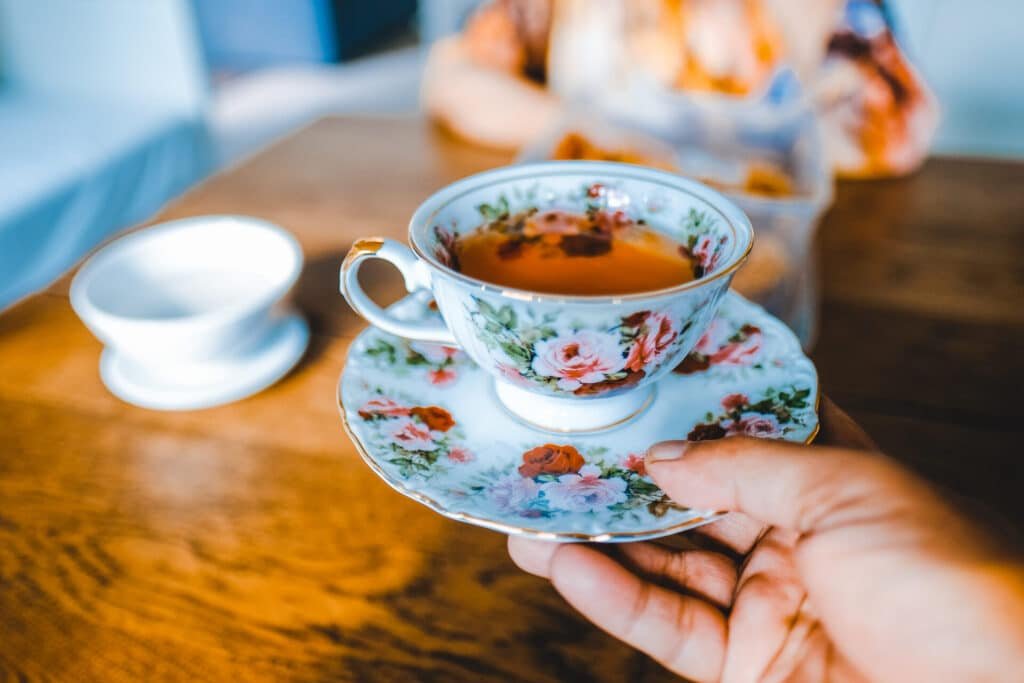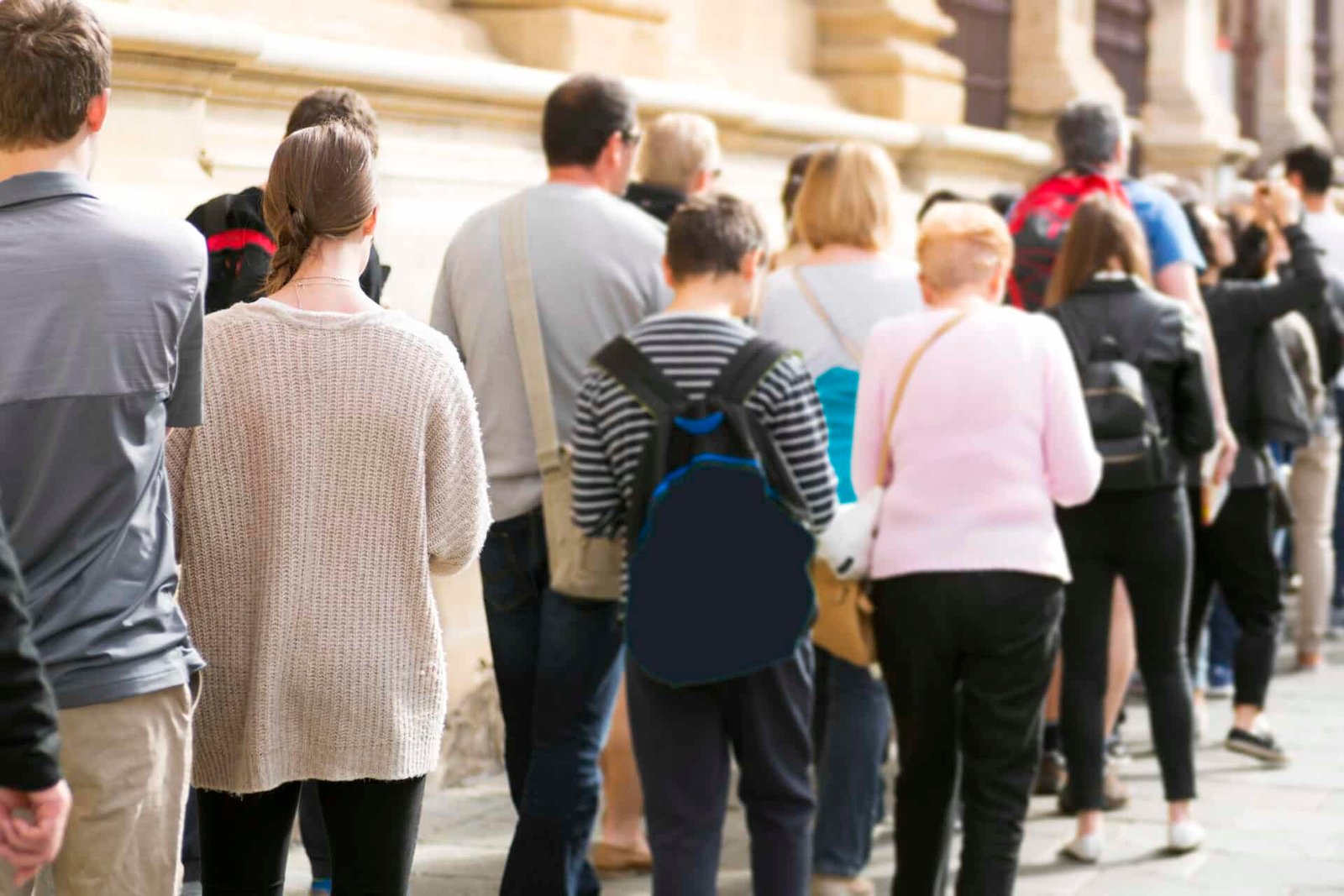Leaving Britain has a funny way of making one suddenly aware of being British. At home, all those little quirks blend in perfectly.
Abroad though, they stand out like a Sunday roast in a sushi bar.
From apologising to furniture, to turning weather chat into an art form, the things Britons do without thinking can seem baffling to outsiders.
Yet these typical British habits tell the story of a culture built on politeness, understatement and quiet humour.
They may draw puzzled looks in Paris or Madrid but they make Britons instantly recognisable anywhere in the world.
1. The apology reflex and overpoliteness
Nowhere else does “sorry” carry so many meanings. In Britain it is less an apology than a reflex.
Someone bumps into you? Sorry. You bump into them? Sorry.
Add to that the habit of saying “thank you” to cash machines or “cheers” when handed a receipt and you get a picture of a nation determined to never seem rude.
Abroad this endless courtesy can seem excessive but it is really a form of social armour. Being polite keeps things smooth and spares everyone embarrassment.
This love of mild manners does not always translate. What sounds charmingly humble in London or laid back in Brighton, might sound oddly distant in Berlin or Amsterdam.
Understanding that difference is vital in global communication and it is exactly the kind of nuance BeTranslated considers in cultural understanding when adapting content for other cultures.
2. Queuing: a national sport
No one queues quite like the British. There is an instinctive sense of order that takes over at bus stops, airport gates and even ice cream vans.
A neat line forms as if by magic held together by mutual respect and quiet judgment.
Abroad queuing can be a looser concept: in some countries people crowd cheerfully around the counter and whoever speaks first is served first.
For the British traveller, it is chaos disguised as normality. There is polite horror but rarely complaint.
The queue is more than a habit. It is democracy in miniature fairness in physical form. It is proof that civility still matters even when the world rushes on.

3. Talking about the weather
For most people the weather is a backdrop. For Britons, it is a conversation starter, emotional outlet and national obsession.
Rain, sunshine drizzle, a stiff breeze… there is always something to discuss.
Abroad this habit often confuses. In Spain or Portugal no one mentions the sky unless it is doing something extraordinary.
But for Britons, talking about the weather is not really about meteorology, but a safe way to connect.
“Bit grey today, isn’t it?”, can mean anything, from “good morning” to “please do not make this awkward!”.
It is a cultural code that translators recognise. Sometimes words carry warmth, not information.
That is the kind of subtlety BeTranslated captures when helping people connect across languages.

4. Understatement and indirectness
If understatement were a competitive sport Britain would top the league.
“Not bad”, means “Really quite good”, “Could be worse” means “This is terrible” and “We should have a chat” is a phrase to fear.
To many other cultures this sounds like a guessing game.
Direct speakers hear British understatement and think everything is fine when it rarely is.
But that is the beauty of it. In fact, the British would rather downplay drama than make a fuss.
For translators this is more than amusing. It is a serious skill. Translating tone means knowing when fine actually means furious and when silence means everything.
It is one reason BeTranslated focuses as much on cultural awareness as on language accuracy.
5. Tea: the great unifier
Tea is Britain’s unofficial cure for everything. Bad day? Have a cuppa!. Good news? Let’s celebrate with tea!
There is no situation so dire that a warm mug cannot improve it.
Abroad the quest for a proper brew becomes a mission. Travellers pack tea bags complain about the milk and quietly judge any attempt involving lemon.
To outsiders it is a small thing, but to Britons it is comfort in liquid form.

6. Avoiding confrontation
Perhaps the most baffling British habit abroad is the reluctance to complain.
The wrong meal arrives? Smile and eat it. The hotel room faces a wall? It is fine. Something breaks? Do not worry about it.
In more direct cultures this politeness looks like passivity, but it is actually a deep discomfort with conflict.
Confrontation feels worse than the problem itself.
Better to keep calm stay polite and grumble later over a cup of tea.
This instinct to avoid fuss mirrors how Britons communicate in general. Carefully indirectly and with a touch of humour.
In international projects, tone can mean the difference between offence and charm.
The trick is knowing when to be clear and when to soften the message, something BeTranslated does daily.
7. The art of avoiding eye contact
The British approach to public transport could be studied in museums.
Everyone sits perfectly still eyes fixed on nothing pretending not to exist. It is not rudeness but respect.
A silent pact to leave each other alone.
Abroad, where eye contact often signals friendliness or confidence, this behaviour can seem cold.
In truth it is a way of keeping life pleasantly unawkward. It is social grace through invisibility.
That same subtlety makes British communication unique. It relies on what is not said on understatement on the careful dance of not imposing.
In translation that restraint can be gold dust. Knowing when silence says enough.

When travels reveals who Britons are
Travel holds up a mirror. The queuing, the apologising, the endless thanks, the weather talk, they all stand out abroad but they also define what it means to be British. These habits may seem eccentric, but they speak of a culture built on courtesy and quiet resilience.
Rather than cringe at them, Britons can take pride.
They show empathy patience and humour in daily life even when faced with baffled baristas and chaotic airports.
Whether from Norwich or York, Nottingham or Newcastle, Brits carry their local quirks (accents, humour and all) with them abroad.
In global communication those same traits are an advantage.
A bit of politeness here a touch of understatement there and a willingness to listen go a long way.
It is that blend of warmth and subtlety that BeTranslated brings to cross cultural translation helping messages sound natural and relatable wherever they travel.
For businesses working across languages or travellers who want to make themselves understood abroad, BeTranslated offers expert translation services grounded in cultural understanding and real world experience.
Get in touch
BeTranslated provides professional translation with cultural sensitivity so your message sounds right from London to Liverpool, Manchester to Birmingham and everywhere in between helping businesses and individuals.
Website: https://www.betranslated.co.uk/
Phone: +44 (0)20 3807 0455
Email: info@betranslated.co.uk






